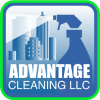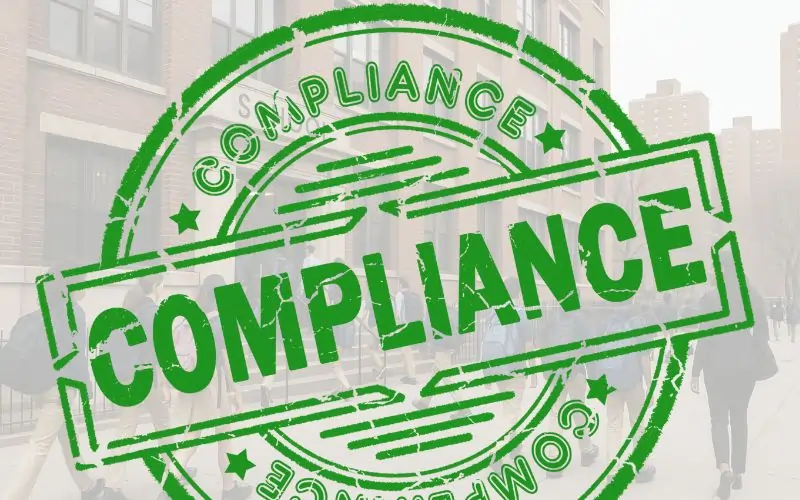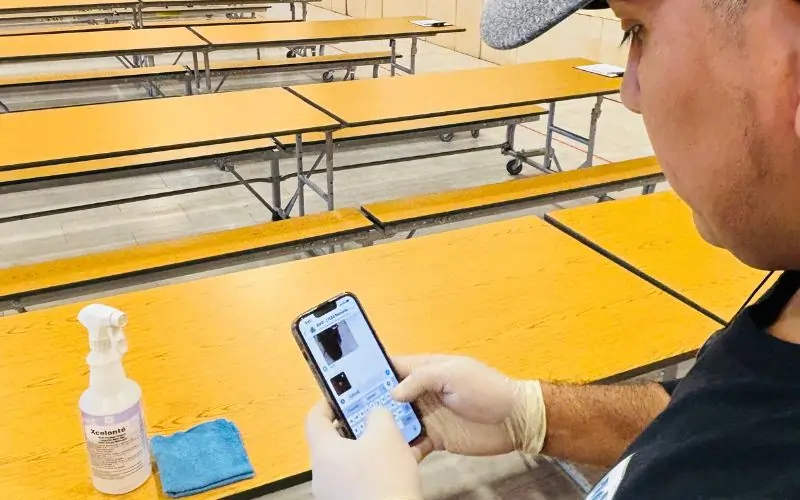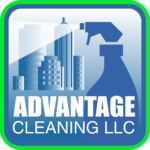This article is a practical blueprint for Charter School Chief Operating Officers responsible for outsourced facility management in New York City, as well as for public school facilities that must adhere to the same standards.
You will learn:
- The full scope of your legal and operational obligations for cleaning, sanitation, snow and ice removal, and graffiti abatement—across city, state, and federal regulations.
- How to structure and document your vendor relationships so that compliance, inspection readiness, and risk management are built into daily operations.
- The specific logs, protocols, guidelines, and real-world documentation you must maintain to pass audits and avoid fines, shutdowns, or reputational harm.
- How to integrate quality assurance and performance measurement into your facility operations—ensuring that every risk, regulation, and cleaning standard is proactively managed and fully documented, every day, in every season.
In New York City charter schools, the Chief Operating Officer is the unseen guarantor of safety, compliance, and operational readiness. Most charter schools rely on external vendors for custodial, grounds, and facility care—but the COO alone remains accountable for risk, regulatory compliance, and uninterrupted operations, regardless of the season.
Comprehensive compliance requires collaboration among departments and other departments, including external agencies such as the NYC Department of Education, to ensure all accessibility and operational standards are met.
A COO’s challenge is both simple and formidable: design, oversee, and document a system that satisfies every agency, in every season, and stands up to unannounced inspection or incident. The following is a guide to the real, enforceable standards governing charter school facility management.
⚠️ Applicability Note:
These requirements apply fully to public schools and charter K–12 schools in NYC and NYS. Private institutions and universities are subject to OSHA, DSNY, and local sanitation laws, but not §409-i.
Private schools and universities must meet all local sanitation, safety, and OSHA standards covered here, but are not subject to the NYS green cleaning law (§409-i) or public K–12 NYSED/DOE facility regulations, as overseen by the York State Education Department. For the most up-to-date compliance information, refer to the official website of the relevant regulatory agencies.
I. Checklist: Regulatory Compliance for NYC School Facilities
A. New York City Department of Sanitation (DSNY) Mandates
- Snow and Ice Removal:
- NYC Administrative Code §16-123 requires removal of snow, ice, and slush from sidewalks abutting school property within four hours after snowfall ends (except 9 p.m.–7 a.m.). If ice cannot be removed, it must be treated with sand or similar material for protection and safety. Non-compliance results in fines and liability.[1]
- Graffiti Removal:
- NYC Administrative Code §10-117 requires schools to remove graffiti from their property within the city’s notice period (generally 35 days) or face city removal and cost recovery. All graffiti abatement actions should be documented and completed in a timely manner.[2]
- Routine Sanitation Compliance:
- School staff and school personnel are responsible for maintaining cleanliness and safety throughout the school year, ensuring all spaces, rooms, and occupied spaces—including restrooms, mechanical spaces, and common areas—are regularly inspected and maintained.
- Sidewalks and gutters adjacent to school property must remain free of litter and debris.
- DSNY inspectors often cite violations based on debris within 18 inches of the curb, although this threshold is not officially codified.
- Proper waste storage and containerization.
- Recycling procedures per DSNY protocols.
- Up-to-date private carter agreements and decals.
- Inspection:
- Inspections of each room, space, and occupied spaces must be completed regularly to ensure all systems are functioning and safe for students and staff.
- Documentation:
- All sanitation activities—including snow, ice, waste, recycling, and graffiti removal—must be logged for DSNY inspection.
B. New York State and City Agency Requirements
- NY State Education Law §409-i (Green Cleaning):
- Only environmentally sensitive cleaning and maintenance products approved by the New York State Office of General Services (OGS) may be used. The OGS maintains the official list of approved products.[3] Usage, SDS sheets, and staff training in product use must be documented, and such records must be maintained for compliance. If documentation or services are requested by the school or authorities, these records must be readily available.
- NYC Local Law 55 (Indoor Allergen Hazards):
- Schools must proactively prevent and remediate indoor mold, pests, and allergen hazards using safe, non-allergenic cleaning methods. Every intervention must be documented.
- NYSED & DOE Facility Regulations:
- Schools must meet all building health, maintenance, and inspection standards. The COO must ensure:
- Daily cleaning logs
- Inspection logs
- Incident/corrective action logs
- All compliance documentation is organized and accessible for audit
C. Federal Requirements—OSHA
- Hazard Communication (HazCom):
- Staff must have current documented training in chemical safety, including reading and understanding Safety Data Sheets (SDS).
- Bloodborne Pathogens (29 CFR 1910.1030):
- Staff must be trained to recognize and safely handle blood or bodily fluids, including proper PPE use.
- PPE Use:
- All cleaning staff must be trained and equipped in correct personal protective equipment selection and use. While OSHA is a federal agency, NYC charter schools are fully subject to its standards. The COO must ensure compliance through documented training and enforcement, even if not locally audited.
- Incident Reporting:
- All workplace exposures, spills, or accidents must be promptly documented, with logs available for inspection.
II. From Law to Daily Action: The COO’s Process
1. Regulatory Requirements Define the System
Every regulation above dictates both what must be done and how it is documented, with clear lines of responsibility for school buildings as the focus of facility management:
- For snow, ice, and graffiti:
- Vendors must perform, document, and deliver time-stamped removal logs and before/after photos; the COO must retain these for audit and verify all deadlines are met.
- For waste and recycling:
- Vendors track and log collections and incidents, and provide carter receipts; the COO maintains these records to satisfy DSNY requirements.
- For green cleaning:
- Vendors must supply only OGS-approved products, keep usage logs and SDS sheets, and document all staff training; the COO must ensure all records are retained and verify the vendor’s products and training comply with state law.
- For daily cleaning, inspection, and incident reports:
- Vendors generate and share all logs (task checklists, inspection findings, corrective actions, spills, hazards, pest/allergen incidents); the COO is responsible for filing, reviewing, and producing these logs on request.
When planning and managing changes to school buildings, the COO oversees the development and execution of each project, ensuring that all phases comply with accessibility and safety standards. Safety protocols must include protection measures for mechanical systems and building occupants.
Compliance procedures must follow established guidelines to ensure consistency and effectiveness. The COO must also ensure access to all compliance records is straightforward for both internal and external review.
Source:
Principle:If the vendor provides the service, the vendor provides the log. The COO ensures every required record is organized, on file, and audit-ready.
2. Vendor Management and Communication
The COO must insist on:
- Written, acknowledged service requests and incident responses.
- A named on-site supervisor accountable for real-time problem-solving and the delivery of all compliance documentation.
3. Inspection Readiness
Inspection is not an event; it is a standing condition.
- All required logs must be instantly accessible for DSNY, DOE, NYSED, or OSHA inspection—no hunting for missing files.
- Supervisors should be prepared to answer questions with documents, not assurances.
- Every deficiency and its correction must be tracked to closure with supporting evidence.
4. Year-Round and Seasonal Adaptability
- Snow and ice removal protocols must be scalable and immediate.
- Graffiti must be abated quickly, and records retained.
- The vendor must be capable of flexing staff for seasonal needs, emergencies, and special events—all under documented protocols.
III. Quality Assurance and Performance Tracking
- All cleaning, grounds, and hazard mitigation activities must be scheduled, performed, and logged, with all tasks and inspections marked as completed and properly documented.
- KPI reporting—task completion, quality scores, response/resolution times, and incident closure—must be provided regularly to the COO, ready for audit or board review. Performance tracking should include monitoring against established limit thresholds to ensure standards are met.
- No risk, regulatory item, or performance lapse is closed until it is documented, verified, and resolved. Such records must be maintained for compliance and future reference.
IV. Service Scope: What “Total Coverage” Means in NYC
- Core Services: Daily janitorial, restroom and cafeteria cleaning, disinfection, floor care, and routine maintenance performed by qualified contractors. Services include cleaning and maintaining both occupied spaces and mechanical spaces, ensuring all areas are safe and functional. Repairs are provided as needed to maintain proper operation of building systems and prevent issues such as freeze-related damages.
- Seasonal and Incident Services: Snow and ice removal (sidewalks, entryways, per code), graffiti removal (within city notice periods), event-driven or emergency deep cleaning.
- Specialty and Support: Mold/pest remediation (Local Law 55), facade and perimeter checks, emergency response, and compliance reporting.
V. Integration: The Closed-Loop System
For the COO, each component—compliance, operations, quality, and scope—must fit into a single, auditable system. Regulations drive action, action is logged, and all records are available on demand. Maintaining documents pertaining to compliance as part of the closed-loop system is essential for transparency and legal adherence. Retaining such records ensures audit readiness and supports ongoing compliance efforts. The website should serve as a central platform for accessing compliance information and documentation. Only then is a charter school protected from fines, disruptions, and reputational harm—whatever the weather or the season.
Sources:[1] NYC Admin. Code §16-123: Snow and Ice Removal [2] NYC Admin. Code §10-117: Graffiti Removal Law [3] NYS OGS Green Cleaning: Approved Products
Operational Capacity: Can Your Vendor Execute?
Every COO must demand more than staffing numbers and generic promises. Use these questions to test and clarify your vendor’s or contractor’s operational support—and to verify that risk, compliance, and daily execution are off your desk and in the contract.
- Do they deliver seamless communication?
- Can your vendor or contractor receive, confirm, and execute every service request in writing, with documented follow-up—so no work order, compliance request, or corrective action is lost or untracked?
- Are all requested services and documentation clearly tracked and acknowledged?
- Is there a named, accessible on-site supervisor?
- Do you have a single accountable contact on-site who owns daily operations, walks your building with you, and answers directly for any issue—routine or urgent?
- Does your vendor proactively alert you to required compliance tasks that fall outside the daily schedule?
- When additional work—such as graffiti removal, seasonal cleaning, or snow/ice response—is needed, does your vendor notify you promptly, specify the regulatory basis, and request approval before proceeding, ensuring you have control of scope and cost?
- Are special projects or non-routine work clearly identified as separate from daily operations?
- What operational reporting do you receive—without chasing?
- Does the vendor proactively deliver all required cleaning logs, incident reports, inspection summaries, and open action items—organized and ready for your compliance files, with no need to request or follow up?
- Are reports for completed tasks and projects provided in a timely manner?
- Do they take ownership for inspection readiness?
- Will your vendor brief you before audits, confirm and resolve open issues, and provide documentation and walk-through support during site inspections—so you are not left preparing alone or answering for missing records?
- Do their quality reviews capture and resolve quality issues proactively?
- Does the vendor schedule and document regular quality reviews, identify deficiencies, implement corrective actions, and close the loop—without waiting for escalation or outside complaint?
- Can they scale and adjust services without losing control?
- Are staffing increases (for summer, events, emergencies) documented and confirmed in advance? Is there a process for reducing or adjusting service without gaps in compliance, cleaning, or safety?
- How is after-hours or emergency work handled?
- Does your vendor have documented protocols for urgent cleaning—outbreaks, weather events, last-minute deep cleans—that are fully staffed, tracked, and reported to you in real time?
- Are all emergency projects and requested services completed and documented for your records?
If your vendor or contractor can’t meet these requirements, operational risk—and regulatory exposure—stays on your desk. The right partner takes tasks, records, and compliance risk off it.
What Charter School’s Need from Their Facility Solutions Partner
Comprehensive Cleaning Services
- Daily janitorial services using only NYS OGS-approved green cleaning products and equipment (OGS Approved Green Cleaning Products)
- Trash collection and compliant disposal per DSNY and city recycling requirements
- Restroom supply management and daily touchpoint disinfection integrated into routines
- Timely repairs for restrooms and ventilation systems are included as part of maintenance services to ensure optimal functionality and prevent costly damages.
Seasonal Services
- Scheduled deep cleaning for floors, carpets, and high-dust areas during school breaks or as needed
- Scalable disinfection for outbreaks, flu season, or DOE health mandates
- Mold, pest, and allergen remediation performed and documented in full compliance with Local Law 55, following established guidelines for safety and effectiveness.
Specialty Services On-Demand
- Proactive notification and approval process for all non-routine needs: graffiti removal, snow and ice response, special cleaning projects
- Vendor identifies compliance-driven work (graffiti, snow/ice, floor care), informs COO of regulatory requirements, and obtains approval before proceeding
- Execution is timely, documented, and compliant with all city codes, with access to compliance documentation provided for review as needed.
Operational Quality Control and Efficiency
- Vendor maintains a documented quality control system with scheduled inspections and scoring for all facility systems, including HVAC and ventilation.
- Quality reviews and corrective actions are vendor-driven, not dependent on COO intervention
- Single on-site supervisor provides proactive oversight, keeps daily compliance documentation current, and anticipates audit or board needs—alerting the COO to any compliance or operational risk
- Safety protocols are implemented to ensure protection of building occupants and infrastructure during all operations.
KPI Reporting
- Regular reporting of:- Task and area completion rates
- Quality inspection scores
- Response and resolution times for service requests, incidents, and deficiencies, including repairs and maintenance of systems.
Demonstrate Total Regulatory Fluency
- Vendor must apply, document, and be able to explain compliance with all NYC, DSNY, NYSED, DOE, and OSHA requirements, following clear guidelines for each procedure.
- All required logs, certificates, and records are maintained, organized, and provided to the COO immediately upon request, ensuring easy access to all compliance documentation.
Single-Source Accountability and Scalability
- One contract, one standard, one responsible vendor—no ambiguity
- Vendor can rapidly adjust staffing and services for emergencies or special circumstances, always maintaining compliance and documentation, and ensuring protection and operational continuity for all systems.
If your partner cannot provide every element above, with proactive communication and documentation, operational risk and compliance burden remain with you. The right partner prevents that, every time.
Minimum Required Records & Retention Periods
Facility managers (FMs) often feel overwhelmed by the volume of required records, and they’re not alone. However, regulations specify that such records—including detailed protocols and documentation—are essential for compliance and inspection readiness.
The minimum essential documentation, when consistently maintained, satisfies these requirements. For guidance on maintaining such records, facility managers should consult the official website, which provides up-to-date recordkeeping guidelines and information.
| Regulation | Minimum Records | Retention Period |
|---|---|---|
| NYSED Mandated Services (incl. school cleaning) | Service logs, contracts, invoices for mandated services | 7 years infohub.nyced.org |
| General business records (e.g., vendor invoices, payroll) | Financial, tax, operations records | 3–6 years, depending on type |
| Electronic records from city ordinances | Logs, digital photos, reports of cleaning/snow/ice/gen compliance | 6 years |

A higher grade of School Cleaning
About Advantage Cleaning
Advantage Cleaning provides commercial cleaning solutions built around the needs of New York’s charter schools, private schools, and universities.
Our operational and quality control system is designed to deliver efficiency, consistent high-quality results, and full regulatory compliance—without added workload for facility executives.
Through rigorous training, scheduled quality inspections, and KPI-driven measurement, we address issues before they become problems. Facility leaders get more than clean buildings: they gain confidence, time, and freedom from compliance headaches, knowing every detail is managed and audit-ready.
Source:
- NYC Admin. Code §16-123: Removal of snow, ice and dirt from sidewalks; property owners’ duties
- NYC Admin. Code §10-117: Graffiti Removal Law
- NY State Education Law §409-i: Green Cleaning in Schools
- NYS OGS Approved Green Cleaning Products List
- NYC Local Law 55: Indoor Allergen Hazards
- NYSED Facilities Planning Guide
- NYC DOE Facilities Services
- OSHA Hazard Communication Standard
- Bloodborne Pathogens Standard (29 CFR 1910.1030)
- OSHA Personal Protective Equipment
- U.S. EPA Safer Choice Program (for reference on green cleaning)
- ISSA Cleaning Industry Management Standard
FAQ
Relevant articles
Create Your Custom Cleaning Plan – Guide To NYC Facility Managers
Generic cleaning plans fail because even “similar” facilities have dramatically different usage, wear patterns, and…
Marble Floor Restoration: Complete Guide for Facility Managers
This comprehensive guide walks you through professional marble restoration—helping you understand when your floors need…





